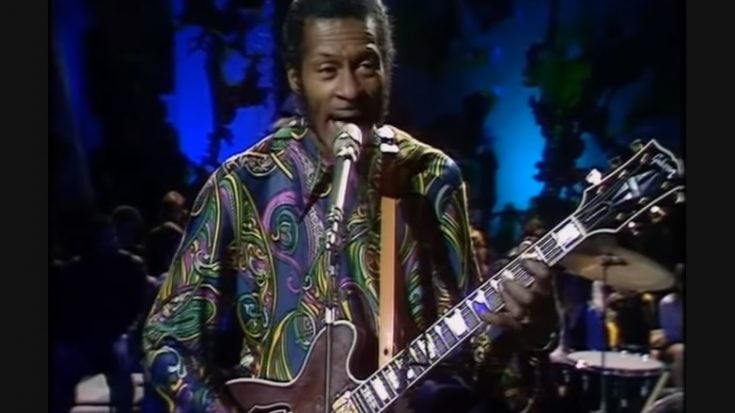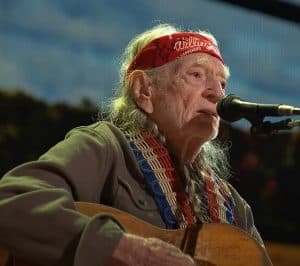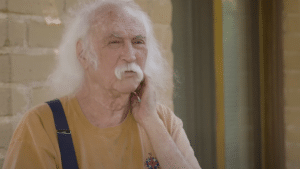How Famous Musicians Destroyed Their Career In Just 1 Day

Chuck Berry live at the BBc Theatre, 1972 - Jimmy Saa / Youtube
The music industry seems to operate under its own set of rules. From Justin Bieber’s run-ins with the law to Ozzy Osbourne’s infamous bat-biting incident, some musicians appear untouchable.
Even Johnny Cash’s self-professed murder couldn’t keep him off the stage, as evidenced by his legendary Folsom Prison concert. But don’t be fooled by this apparent immunity. While outrageous behavior might not always sink a career, a single, seemingly harmless misstep can have disastrous consequences.
Here, we explore the surprisingly mundane actions that have sent music stars plummeting from grace, proving that even the most successful careers can be demolished in a single day.
Jerry Lee Lewis’s young bride was way too young
In 1958, Jerry Lee Lewis, a rock ‘n’ roll legend, brought his young wife to England, sparking a scandal. The British, known for their love of tea and weather chats, were unprepared for Lewis’s personal life. He had married his cousin, Myra Gail Lewis, who was just a teenager, and took her on tour without disclosing their relationship or her age. The British media, intrigued by the young bride, soon uncovered the unsettling truth.
Lewis’s career took a nosedive when it was revealed that Myra was not only underage but also his cousin. The revelation led to a public outcry; his concerts were met with boos, and cancellations followed. Forced out of his hotel and shunned by the British public, Lewis returned to America only to face a career blackout. Despite never losing his recording contract, his subsequent releases failed to regain his lost stardom.
A drunk Eric Clapton inadvertently lets out his inner racist
Eric Clapton, a thrice-inducted Rock & Roll Hall of Famer, inadvertently ignited the Rock Against Racism movement with a speech that would mark a cultural pivot in Britain. This movement, which later evolved into Love Music Hate Racism, found its roots in Clapton’s controversial onstage rant in 1976.
Amidst a period of heightened racial tension in Britain, Clapton’s drunken diatribe on stage in Birmingham included endorsing Enoch Powell’s anti-immigration stance and inflammatory comments about Britain’s demographic changes. Although Clapton wasn’t completely shunned, the incident left an indelible mark on his reputation, intertwining his legacy with issues of racism.
Marilyn Manson’s music became involved in an infamous school shooting
The Columbine High School massacre on April 20, 1999, left America in shock and searching for a scapegoat. Marilyn Manson, a musician already viewed with suspicion, became the target when it was rumored that the perpetrators were fans of his music. Despite the fact that the shooters were not goths nor Manson enthusiasts, preferring bands like KMFDM and Rammstein, the damage to Manson’s reputation was immediate and severe.
Manson faced a public backlash; protests at his concerts, death threats, and bomb scares became part of his daily reality. He later expressed to the media that the association with Columbine was an unfair attribution of blame that had a detrimental impact on his career, even jokingly suggesting that such notoriety should warrant a Grammy. This incident highlights the phenomenon where infamy can sometimes eclipse fame.
Sly Stone’s career notorious cocaine habit
Sly Stone’s descent was not a sudden plunge but a gradual slide into infamy. The leader of the groundbreaking group Sly and the Family Stone, who once graced the stage at Woodstock, succumbed to the excesses of the ’70s, marked by a notorious cocaine habit. His personal life unraveled publicly as he missed performances and faced family tragedies, yet it was his 1983 arrest for cocaine possession that sealed his fate, leading to a long hiatus from the music industry.
Stone’s attempt at a resurgence in the new millennium was short-lived. His 2010 Coachella appearance, intended as a triumphant return, turned disastrous. His erratic behavior and incoherent performance disappointed fans and critics alike. The following year found the once-celebrated musician in dire straits, a stark contrast to his former glory, living out of a van.
Dixie Chicks stood out against Iraq… and the President
In the heart of country music’s patriotic spirit, the Dixie Chicks stood out in 2003 with a bold declaration against the Iraq War and the President, made on a London stage. This moment of outspokenness was a sharp turn from the genre’s usual ethos and marked the beginning of a steep decline for the group’s career.
The backlash was swift and severe; the Dixie Chicks faced a stark fall from grace as their music was shunned by radio stations, their singles disappeared from the charts, and they became the subject of widespread public condemnation. Despite a rebranding effort years later as The Chicks, the shadow of that fateful day continues to loom over their legacy.
https://twitter.com/ThatEricAlper/status/971785297708150785
Alan Freed broadcasted an interracial dance in the ‘50s
Alan Freed, the man who popularized the term “rock and roll”, was a pivotal figure in shaping postwar American music. His influence peaked between 1952 and 1957, as he introduced the nation to rock music through his ABC show, Big Beat. However, in 1957, an incident on his show — the broadcast of an interracial dance — was deemed so controversial that it led to the show’s abrupt cancellation.
The cancellation of Big Beat was just the beginning of Freed’s troubles. His personal life was in disarray, and his health was deteriorating. The controversy surrounding the show was compounded when Freed became embroiled in the payola scandal, accused of accepting money for airplay. This scandal effectively ended his career, and he passed away in 1965, having lost his fortune and his standing in the music industry.
Ashlee Simpson’s embarrassing SNL lip-sync fiasco
Ashlee Simpson’s career took a hit when she was caught lip-syncing on Saturday Night Live. The incident, where her band played a track she had performed earlier, revealing the pre-recorded vocals, led to widespread criticism. Fans and critics alike were unforgiving, not so much for the mishap itself, but for the perceived deception.
The fallout from the SNL episode was significant and long-lasting. Simpson faced relentless scrutiny and her attempts to justify the lip-syncing only intensified the backlash. Her subsequent albums failed to match the success of her previous work, and she never managed to reclaim her place in the top charts.
Sinead O’Connor tore up a photo of the Pope on SNL
Sinead O’Connor’s 1992 performance on Saturday Night Live became infamous when she concluded her rendition of Bob Marley’s “War” by tearing up a photo of the Pope. This act of protest against the Catholic Church’s issues, particularly the sexual abuse of children, was a bold move that shocked many, given the significant Catholic population in America.
The immediate backlash was intense; O’Connor faced a wave of unpopularity, culminating in a chorus of boos at Bob Dylan’s 30th-anniversary concert. The incident led her to declare a retirement from music, and although she eventually returned, her career never fully recovered from the controversy she stirred with that single act.
https://twitter.com/WUTangKids/status/1684279672828313600
George Michael was arrested for a “lewd act” in a public restroom
George Michael, an icon of the ’80s, faced a turning point in 1998 when he was arrested for a private act in a public space. This event thrust him into the spotlight in a way he had never been before, challenging both his personal privacy and public image.
In the wake of the incident, Michael didn’t retreat; instead, he stepped into the public eye even more, embracing his identity and becoming an outspoken figure for the LGBTQ+ community. Although his career in America suffered, his bold stance became a beacon of hope for many, helping to pave the way for greater acceptance and understanding.
Chuck Berry was outed as a bathroom creep
Chuck Berry’s reputation was marred by a scandal in the late 1980s, despite his established status as a rock ‘n’ roll superstar. The discovery of hidden cameras in his property, used to record women in private moments, led to a class-action lawsuit and a police raid that uncovered illegal substances and a large sum of cash.
Berry faced legal consequences, including charges of drug possession and child abuse, although the latter were dropped. He was sentenced to probation and a fine, but the legal costs were substantial. While his career continued with performances, the scandal left a lasting stain on his public image, affecting how audiences perceived him.











